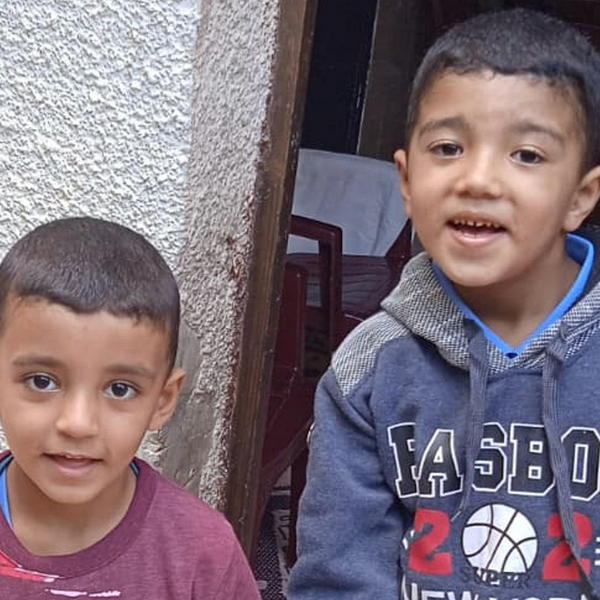Iraq: July Was Deadliest Month in Two Years
July was the deadliest month in Iraq in nearly two years according to official figures released by the country's health, interior and defense ministries on Wednesday. 325 people were killed in attacks over the course of the month.
July 23 peaked as the deadliest day in the country since December 2009, when coordinated attacks struck 19 cities killing up to 106 people. Al-Qaeda's front group, the Islamic State of Iraq (ISI), claimed the attacks.
Of the 325 people killed throughout the month, 241 were civilians, 40 were police and 44 were soldiers. Another 697 people including 480 civilians were wounded.
Attacks are still a daily part of life throughout much of the country according to the recent statistics. 27 of the 31 days in July saw attacks, with 10 or more people killed in attacks on five separate days -- 39 on July 3, 11 on July 4, 17 on July 22, 113 on July 23, and 23 on July 31.
Bombings and other attacks on civilians have increased since the supposed withdrawal of the US occupation in 2011, amid the deepening political tensions in the country, according to Amnesty International. In total, since the US invasion in 2003, deep sectarian divisions have drastically worsened throughout the country.
An Urgent Message From Our Co-Founder
Dear Common Dreams reader, The U.S. is on a fast track to authoritarianism like nothing I've ever seen. Meanwhile, corporate news outlets are utterly capitulating to Trump, twisting their coverage to avoid drawing his ire while lining up to stuff cash in his pockets. That's why I believe that Common Dreams is doing the best and most consequential reporting that we've ever done. Our small but mighty team is a progressive reporting powerhouse, covering the news every day that the corporate media never will. Our mission has always been simple: To inform. To inspire. And to ignite change for the common good. Now here's the key piece that I want all our readers to understand: None of this would be possible without your financial support. That's not just some fundraising cliche. It's the absolute and literal truth. We don't accept corporate advertising and never will. We don't have a paywall because we don't think people should be blocked from critical news based on their ability to pay. Everything we do is funded by the donations of readers like you. Will you donate now to help power the nonprofit, independent reporting of Common Dreams? Thank you for being a vital member of our community. Together, we can keep independent journalism alive when it’s needed most. - Craig Brown, Co-founder |
July was the deadliest month in Iraq in nearly two years according to official figures released by the country's health, interior and defense ministries on Wednesday. 325 people were killed in attacks over the course of the month.
July 23 peaked as the deadliest day in the country since December 2009, when coordinated attacks struck 19 cities killing up to 106 people. Al-Qaeda's front group, the Islamic State of Iraq (ISI), claimed the attacks.
Of the 325 people killed throughout the month, 241 were civilians, 40 were police and 44 were soldiers. Another 697 people including 480 civilians were wounded.
Attacks are still a daily part of life throughout much of the country according to the recent statistics. 27 of the 31 days in July saw attacks, with 10 or more people killed in attacks on five separate days -- 39 on July 3, 11 on July 4, 17 on July 22, 113 on July 23, and 23 on July 31.
Bombings and other attacks on civilians have increased since the supposed withdrawal of the US occupation in 2011, amid the deepening political tensions in the country, according to Amnesty International. In total, since the US invasion in 2003, deep sectarian divisions have drastically worsened throughout the country.
July was the deadliest month in Iraq in nearly two years according to official figures released by the country's health, interior and defense ministries on Wednesday. 325 people were killed in attacks over the course of the month.
July 23 peaked as the deadliest day in the country since December 2009, when coordinated attacks struck 19 cities killing up to 106 people. Al-Qaeda's front group, the Islamic State of Iraq (ISI), claimed the attacks.
Of the 325 people killed throughout the month, 241 were civilians, 40 were police and 44 were soldiers. Another 697 people including 480 civilians were wounded.
Attacks are still a daily part of life throughout much of the country according to the recent statistics. 27 of the 31 days in July saw attacks, with 10 or more people killed in attacks on five separate days -- 39 on July 3, 11 on July 4, 17 on July 22, 113 on July 23, and 23 on July 31.
Bombings and other attacks on civilians have increased since the supposed withdrawal of the US occupation in 2011, amid the deepening political tensions in the country, according to Amnesty International. In total, since the US invasion in 2003, deep sectarian divisions have drastically worsened throughout the country.

